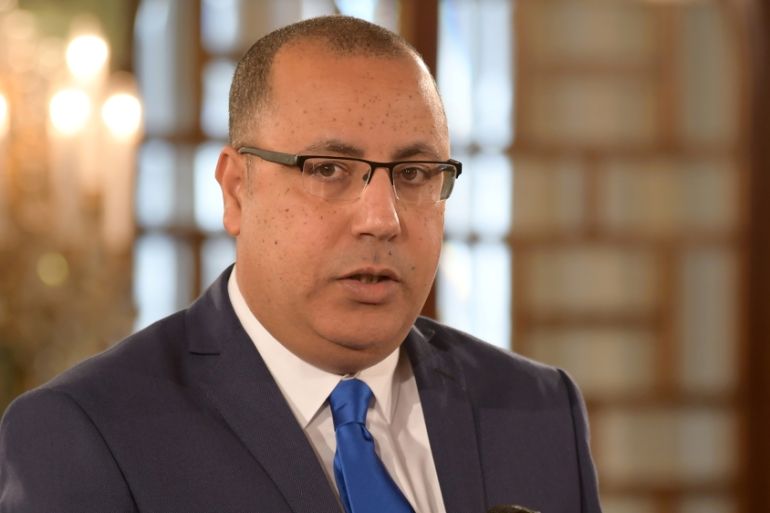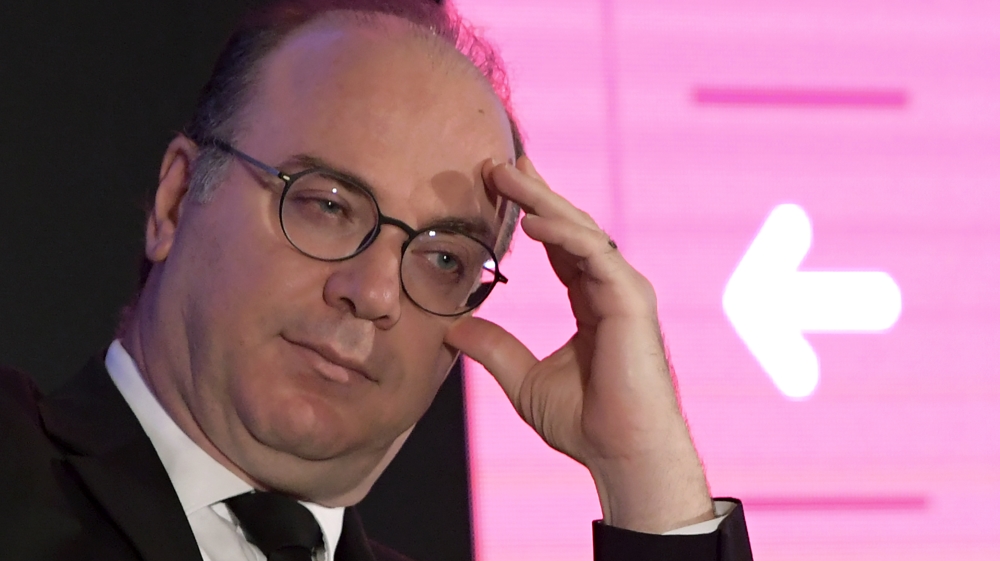Tunisia interior minister named new PM, to form gov’t in a month
Hichem Mechichi succeeds Elyes Fakhfakh, who resigned as prime minister earlier this month amid political tensions.

Tunisia’s Interior Minister Hichem Mechichi has been appointed to form the next government, the president’s office said, amid political tensions among major parties in the North African country.
The 46-year-old lawyer succeeds Elyes Fakhfakh, who resigned as prime minister earlier this month. But Mechichi was not one of the names proposed by the governing political parties to President Kais Saied.
Keep reading
list of 4 itemsKey takeaways as ex-Trump lawyer Michael Cohen testifies in New York trial
Top US Senator Bob Menendez’s corruption trial begins
UK charges three with working for Hong Kong intelligence
In a statement following Saturday’s announcement, Mechichi said he would “work to form a government that meets the expectations of all Tunisians”.
Tunisia has been praised as a rare success story for democratic transition after the Arab Spring regional uprisings sparked by its 2011 revolution.
But its leaders have struggled to meet the expectations of the Tunisian people and the already fragile economy has been battered by the closure of the country’s borders because of the COVID-19 pandemic.
The disease has killed nearly 50 people and infected more than 1,400 in Tunisia.
As well as being the interior minister in the outgoing government, Mechichi has been a counsellor to President Saied, handling legal matters. He has previously been chief of staff at the Ministry of Transport and also served in the Ministry of Social Affairs.
He now has a month to form a government, which will then face a parliamentary vote of confidence and will need an absolute majority to succeed. Failing that, parliament will be dissolved and new elections will be held within three months.

Political divisions
In the last elections held in October, the Ennahdha party came on top but fell far short of a majority and eventually agreed to join a coalition government.
Fakhfakh’s resignation on July 15, after less than five months in office, threatened fresh political deadlock in the nation as it struggles with the economic fallout of the pandemic.
The resignation deepened the political dispute with Ennahdha over allegations against Fakhfakh of conflicts of interest.
Relations between the 47-year-old outgoing leader and Ennahdha have been strained since the October legislative elections. Fakhfakh stepped down the same day the party filed a no-confidence motion against him.
Ennahdha had initially nominated an independent for prime minister, but he failed to win the support of parliament, leading the president to name former Finance Minister Fakhfakh for the post.
Faced with the prospect of fresh elections, Ennahdha eventually agreed to join the coalition government.